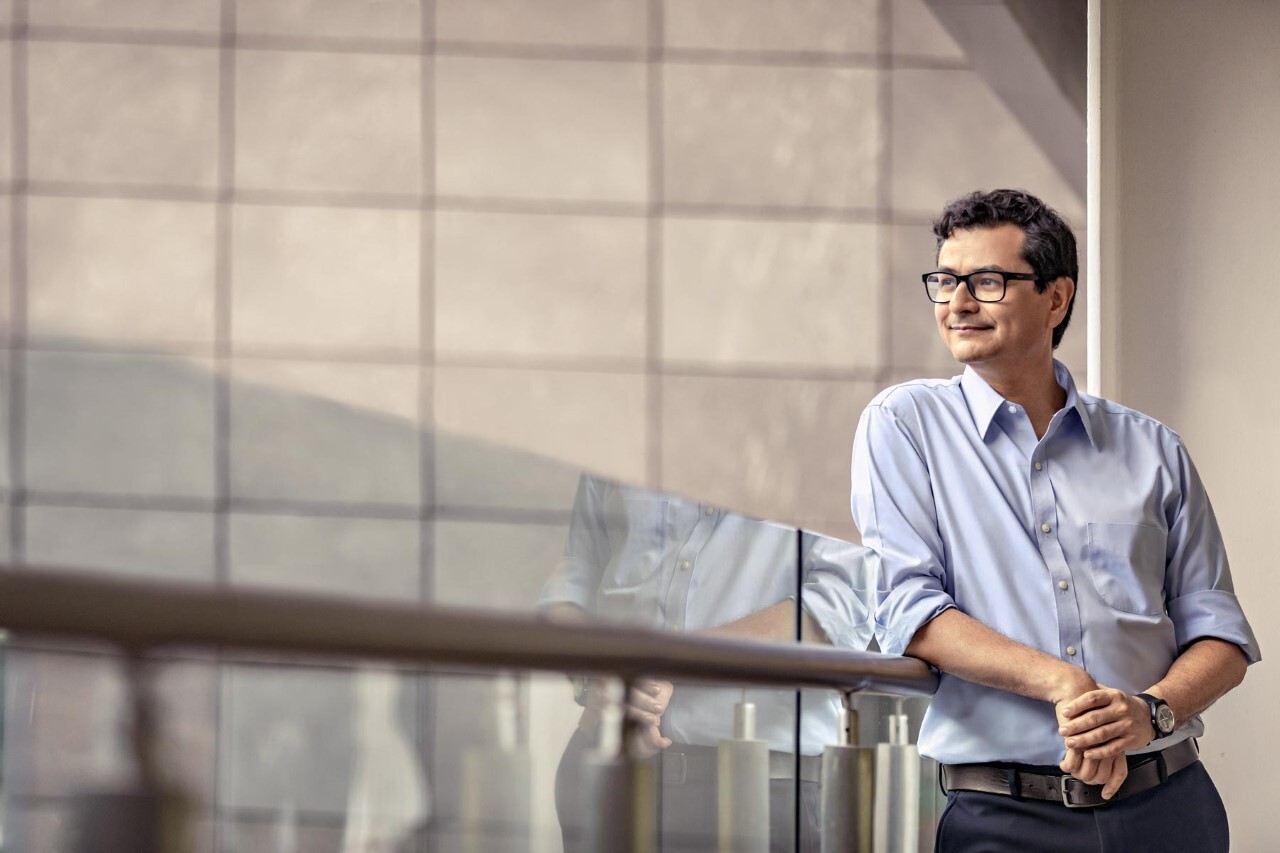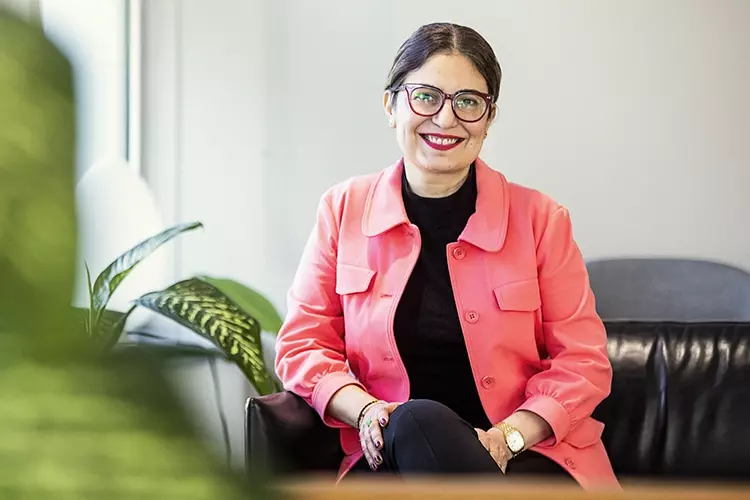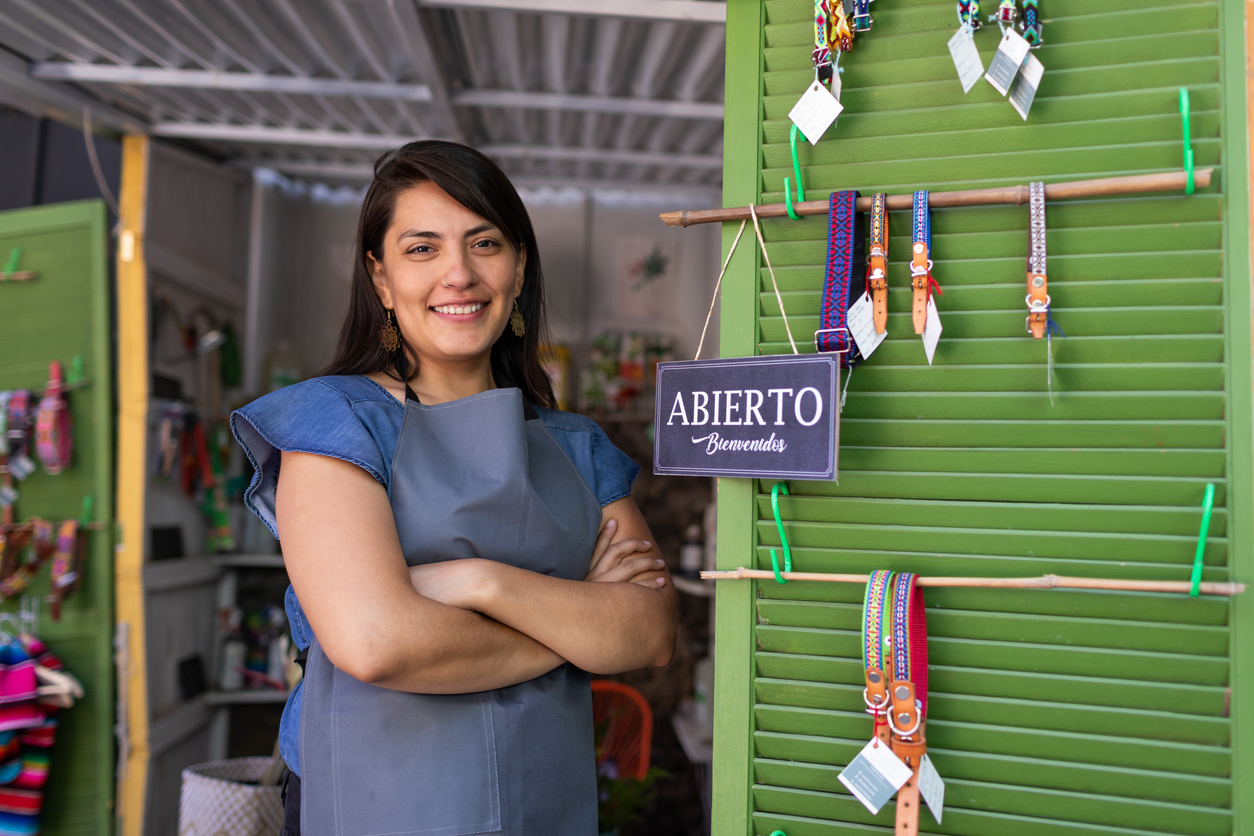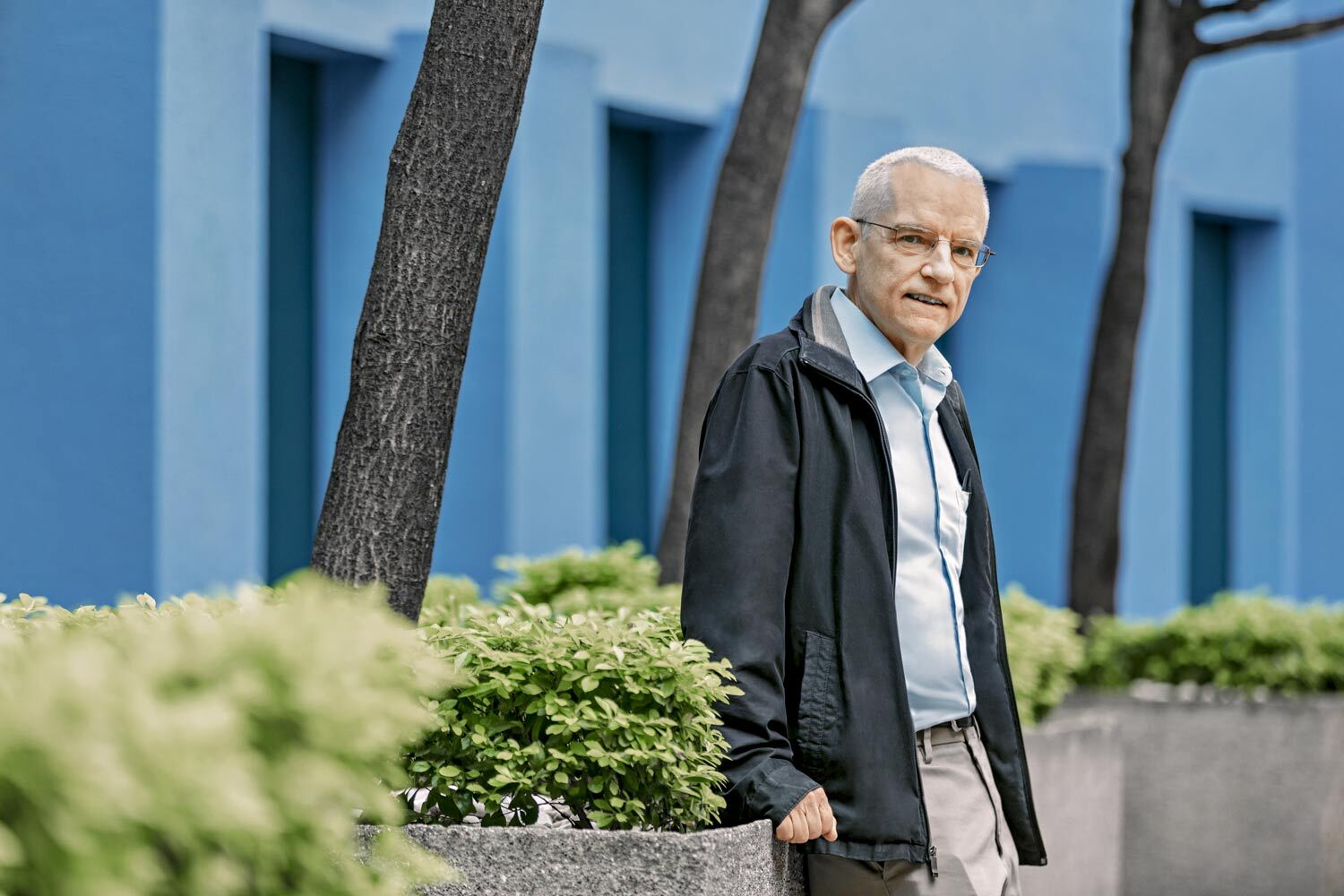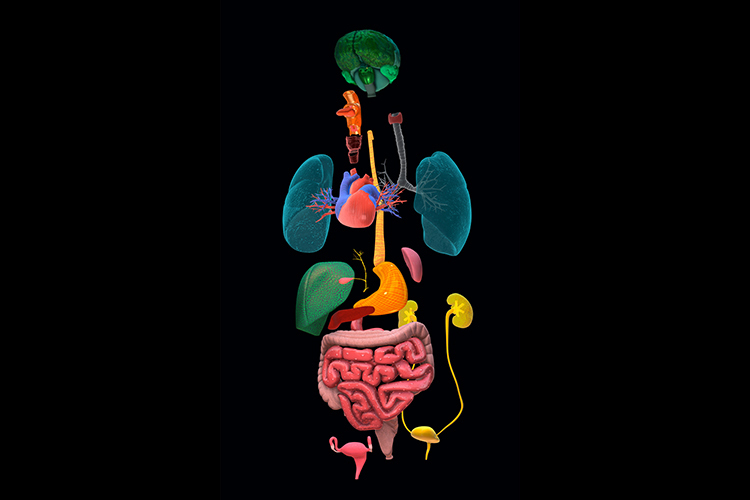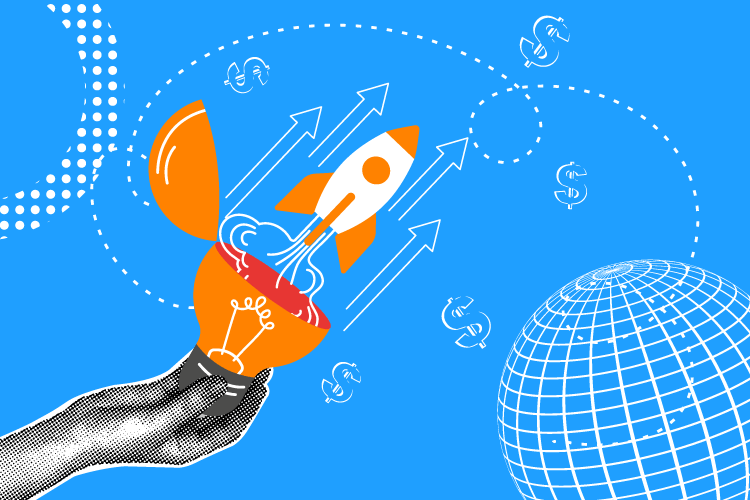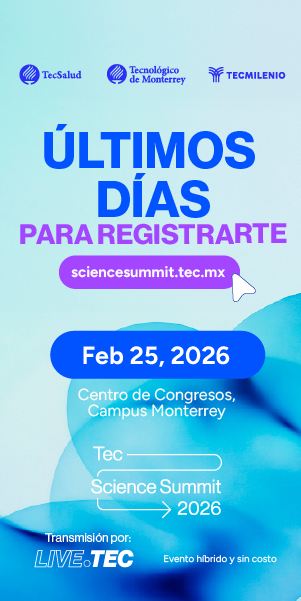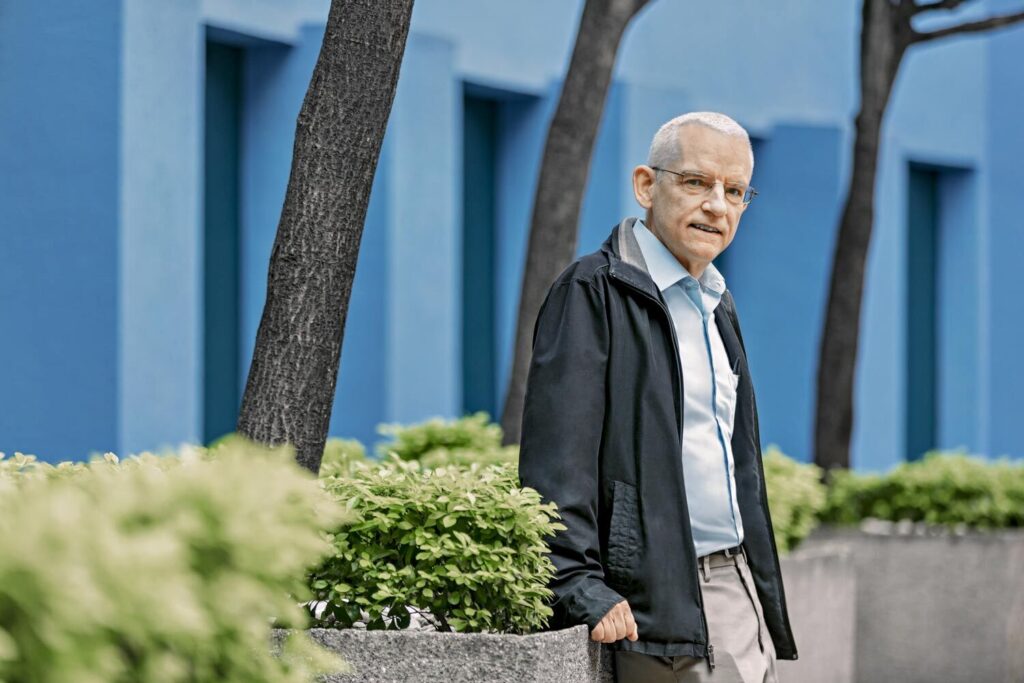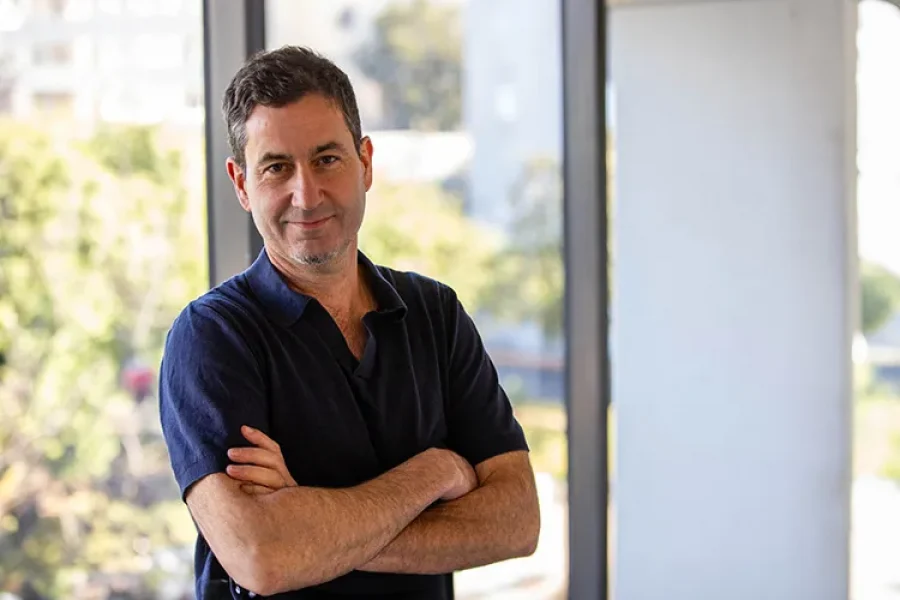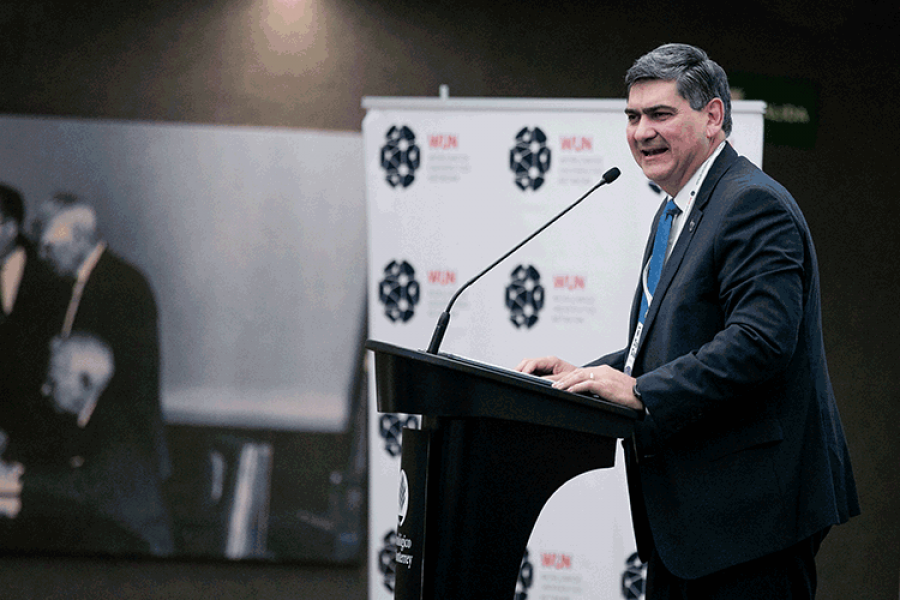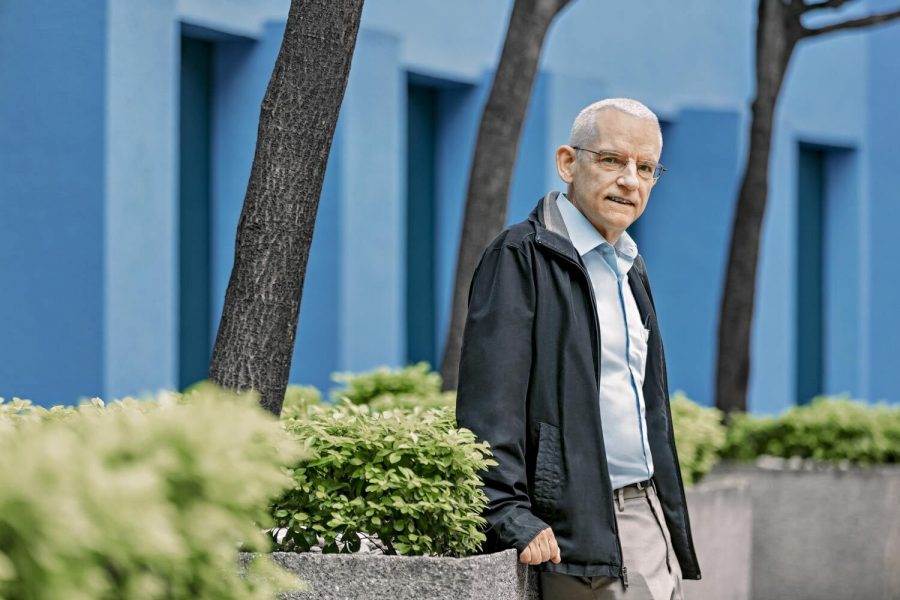Edgar Barroso looks younger than he actually is (he’s 45), perhaps due to his passionate, jovial style of speaking. The director of the Laboratory for Entrepreneurship and Transformation (LET) of the Tec’s School of Government and Public Transformation holds a PhD in musical composition from Harvard University. The first thing I asked him was what music had to do with entrepreneurship. Totally at ease, he rolled up his shirt sleeves as if he were getting together with some old friends and started talking about the topic confidently.
We were on the fifth-floor terrace of the Monterrey Campus library with a great view of the Cerro de la Silla, the iconic mountain overlooking the city of Monterrey. The view took his breath away, as it does to every visitor. Although he has worked for the Tec for several years, Edgar has put down roots in Switzerland.
On this occasion, he had come to the annual board meeting and had made the most of the opportunity by also taking in a Def Leppard gig. After the interview, I realized that all this was like a summary of his life, where his passion for education, entrepreneurship, and music are melded together.
I read somewhere that as a child you used to “play at listening.” What was that about?
I still do that. I’m doing it right now in this interview. But as a kid I would imagine I was listening to a song, and it felt so real that I would ask anyone who happened to be with me if they could hear it too. It’s like walking into a room, a library, or a cafe and catching a whiff of something in the air. My hearing always brings back memories, I mean, I remember places and people more because of what they sound like than anything else.
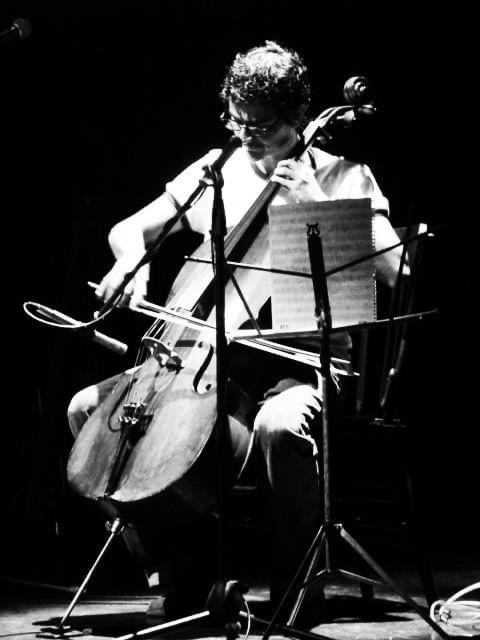
When did you decide to study music at university?
Thanks to my big brother, I got into groups like Pink Floyd or Led Zeppelin when I was very young, and I would spend hours listening to them. But I reckon I started thinking about studying music when I was 11 and a coach gave me a cassette of Beethoven’s “Sixth Symphony.” I thought it was spectacular. I played it on my Walkman time and again. When my friends asked me what I was listening to, I would say Metallica (a band I also like) because I was embarrassed they would find out I was listening to classical music.
Edgar studied musical composition at the University of Guanajuato and went on to do a doctorate at Harvard. Moreover, he has run a variety of socially relevant citizen collaboration projects involving music, such as “Manos al sonido” (Let’s make some sounds), where he and a group of friends taught youngsters from children’s homes in León, Guanajuato, to edit music, not just to bring them closer to technology, but also to develop their musical thinking. Another project, “60 minutos por México” (60 minutes for Mexico), involved persuading people to give up an hour of their time for a social cause.
What inspired you to get involved in this kind of social initiative?
One day, while I was studying for my PhD, I was coming out of a meeting where we had been discussing the spectromorphology of sound in Denis Smalley’s work when I learned that my family had been robbed in Mexico. They had held an automatic rifle to my brother’s head and beat him up. I realized how disconnected I had become from reality, and I started wondering if I wanted to live in an academic bubble, doing research that five people in the world might find interesting, or if I was going to dedicate my life to trying to make a difference. Since then, my work has focused on finding ways that music and musical thinking, which involve mathematics, complex systems, temporal interactions, and so on, might contribute to other disciplines.
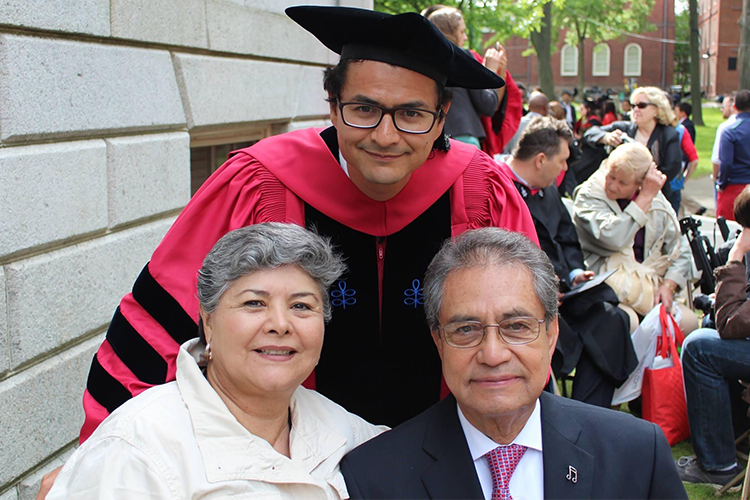
With his parents, during his graduation from Harvard’s PhD in Music Composition. (Photo: Courtesy)
Was that how you transitioned from music to entrepreneurship? At first glance, they seem unrelated.
Entrepreneurship involves a great deal of creativity if you conceive it as an attempt to try and do something new and unique. In that respect, it’s like artistic production. Few people are aware of the depth of research involved in artistic production; it’s not just inspiration. So now at the LET we’re trying to foster an approach to public entrepreneurship from a scientific and complex adaptive-systems perspective. There’s also evidence of the influence that music, and consequently musical thinking, has on other disciplines. For example, Fabiola Gianotti may be the director of the CERN (European Council for Nuclear Research) and hold a doctorate in experimental particle physics, but she is also a professional pianist. Fabiola believes that music has been an essential part of her education, her intellect, her science and civilization. And I could mention many more cases, like Aaron Berkowitz, a composer who did the same doctorate as me and is now a renowned neuroscientist. So, I believe that people who study music professionally can make contributions to other disciplines because their musical thinking can be applied to other disciplines in the same way we are doing it at the School of Government.
A positive impact on public issues
How did you come to the Tec de Monterrey?
I met Alejandro Poiré in 2014. At that time, he was the dean of the School of Government and Public Transformation and he was the one who introduced me to the idea of public entrepreneurship. He made me see that a lot could be achieved with the social projects I had been running. He explained that if I really wanted to have a voice in the most important decisions taken in the country, I would have to get involved in public policy, but incorporating the logic of evidence-based entrepreneurship and innovation. Poiré had the idea of setting up a laboratory and brought me in on the project. So, we set up the Laboratory for Entrepreneurship and Transformation (LET) together.
What does the Laboratory for Entrepreneurship and Transformation do?
Our goal is to tackle the challenges and opportunities that come our way by taking advantage of scientific and technological advances with real-world applications. We try to make academic contributions but with a view to making a positive impact on public issues. In other words, we are attempting to create more public value for everyone.
All this work can be summed up in a project we are working on called “Arquitectura de Horizontes” (Horizon Architecture). In this project we use complex adaptive-system theory, transdisciplinary methods, and advanced technologies, such as artificial intelligence and diverse computational techniques, to restructure highly complex challenges. We have used this method in collaboration with the UN’s FOA LATAM and private companies to develop a digital maturity index and teach enterprises how to use it.
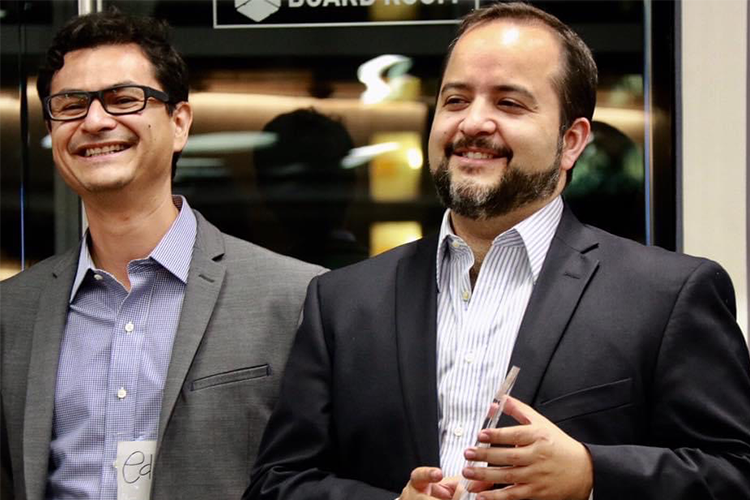
In 2015, Alejandro Poiré invited Edgar to join Tec de Monterrey to launch the Entrepreneurship and Transformation Laboratory (Photo: Courtesy)
How important is research in public entrepreneurship?
Research is a step that can’t be skipped if you want to be an entrepreneur, and it’s even more critical in the public arena. Understanding your market and its inherent problems is key to coming up with a solution.
During the research, you try to prove a hypothesis by doing experiments or following scientific processes, which lays the foundations for taking reasonable risks and enables you to conduct experiments based on solid evidence. This creative leap is vital if you want to innovate. Innovations are always risky, but taking risks with evidence or without evidence are two very different prospects. It increases your chances of success. The combination of evidence that increases the likelihood of an idea coming to fruition and actually making it work is something we are striving to achieve through the LET. We also seek to instill a love for applied research in the entrepreneurs that pass through our halls.
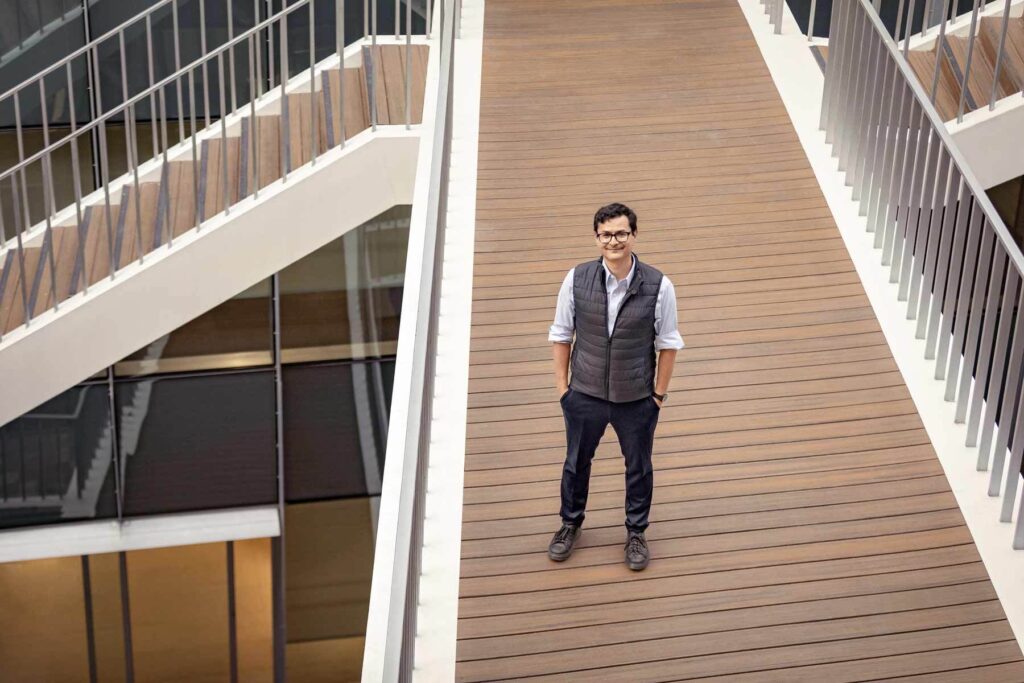
TecScience)
The balance of life
Edgar and his partner, Ulla, met in Malaga, Spain, where they studied musical composition together and he says it was love at first sight. They have two children: Diego, who is about to turn five, and two-year-old David. They live in Zurich. They went to live there initially because of Edgar’s interest in doing musical technology research at the Institute for Computer Music and Sound Technology. Ulla later accepted a job at a Swiss company.
What’s it like working for Mexico but living in Switzerland?
When I had been there for a while, I realized that there were many reasons I needed to work for Mexico: for my family, but also because there’s a lot that needs doing in our country. The Swiss have pretty much taken care of problems like poverty and crime, so what they do now optimize. In contrast, there’s still a lot that needs to be done in Mexico. And new institutions as well as many new science -and technology-based enterprises need to be set up to get it done.
The current dynamic is for me to manage my teams remotely, do research and then come in to find new partners and report back to my team and colleagues.
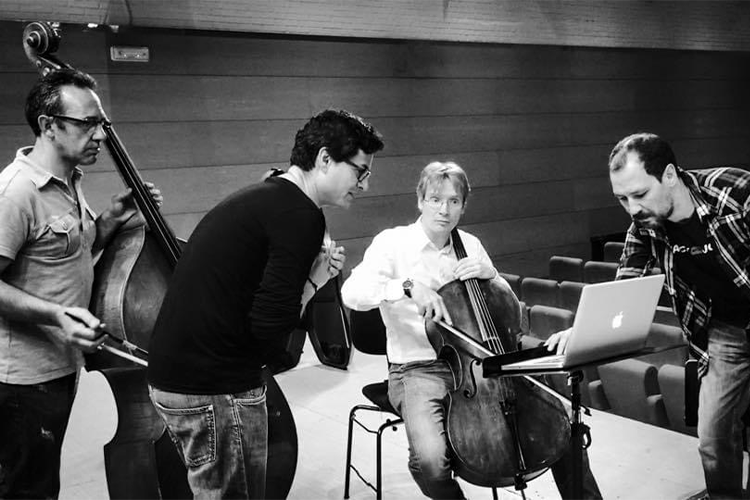
In Vigo, Spain, explaining the interpretation details of a piece of his authorship. (Photo: Courtesy)
Do you have any hobbies?
My passions have always been tennis, music, research, and entrepreneurship. If I can do those four things, I think I’ll have achieved a nice balance because I love all four of them.
I love all kinds of music, especially Renaissance music, and post-rock. I try to follow new musical trends but, truth be told, I don’t know very much about what’s going on in music these days. There are some young performers that I think are fantastic but there are others I don’t connect with so much, but that’s my fault. It could be an age thing, too.
How does being a dad suit you?
My sons take up all my free time and I can honestly say I enjoy shared parenthood immensely. It’s incredible how music is instinctive to us; for example, when they were just a few days old —both Diego and David—, I played Beethoven’s “Romance in F major”, and they were very moved. It even brought tears to their eyes, but tears of joy, not sadness. Do this experiment yourself when you have a baby. It’s really impressive.
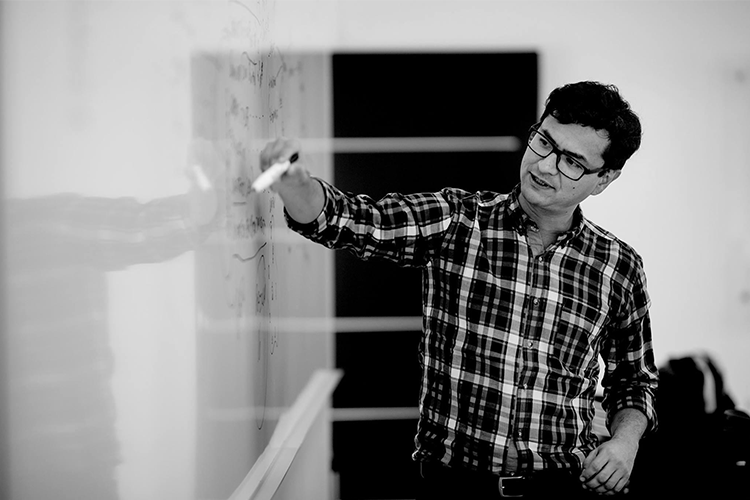
Barroso’s dream is that the careers of the people who get involved in the projects from Entrepreneurship and Transformation Laboratory (LET) take off, and it allows them to fly. (Photo: Courtesy)
What do you think your mission in life is?
I would like to be remembered as a black box, in which people I have had the fortune to interact with come in, we do projects together, and they leave with new opportunities for personal and professional growth. Do you remember playing “tag”? Well, I’d like to think that if you get involved in the projects we’re doing at LET, or any initiative we’re working on together, your career will take off. I’d like it to be a springboard for people to get on and then fly off.
I believe that my mission in life is to dig deep into my research and work with people far more intelligent and capable than me to create things that are truly needed and help new generations as much as possible. I also intend to keep drawing lines and circles on lined and unlined sheets of paper, which is and will continue to be my way of understanding the world and life.
